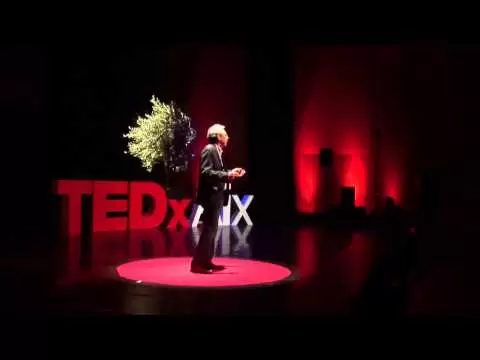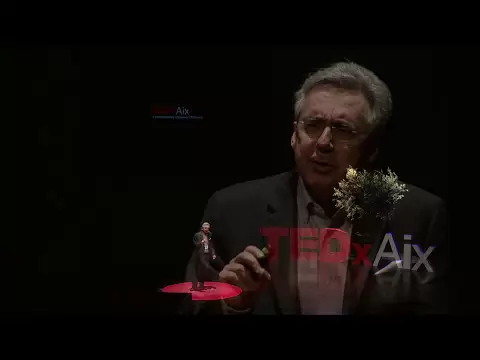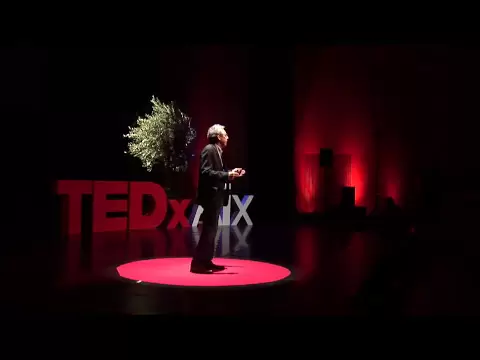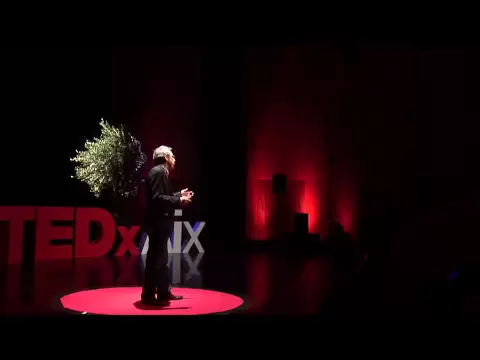The myth of globalisation | Peter Alfandary | TEDxAix
May 01, 2020Sometimes I describe myself as a culturally conflicting English. I am a first generation born in the United Kingdom. They educated me in the French smooth in London for 13 years. I spent much of my childhood in Italy and 30 years as an international lawyer and has always fascinated me cultural differences, but I think I was arriving in New York as a 21 -year -old student who got my first taste of Oxymoron, I would like to share with you today. McClellan when Internet predicted in the 1960s, but more like a word that we use an expression that we use a lot, now my experience in New York was not transcendental, but it left me a great effect on me.
I spent my first day walking through the streets or the impressive word had not yet made me moderate and at the end of the day I decided that I would take over some family friends. The taxi driver of good afternoon, do you think you could possibly take me and read the direction on the sheet of paper that looked around his eyes that had become fun at this stage his brain was clearly working in extra time his response was unforgettable Sunny Joe Wanna Go What You Want You Well, of course, at this stage? First time, how different we are all and how different we communicate that Sonny wants to go or do not want Listened Okay, I realized my Dutch, my German and some of my American clients, the frankness does not necessarily mean that the rudeness a little as my taxi driver in New York and, of course, I also learned that the English really speak in a code that nobody understands that I could cite many examples if we had time, but one of them told me the Italian who explained it, but the English Italian, what the Italian reminded me, which reminded me of the Italian.
A little disappointed in English meant extremely angry and probably never forgive him. I will not end if the meeting begins twenty minutes late, relaxes, what excites you so much? I also learned about lunch and negotiations so that in some cultures a long lunch in the Middle East in France, for example, it can be an integral part of a negotiation and that I always remember a Frenchman who once said that once his colleagues in New York suggest that the work lunch with a sandwich job. There is a global village that is a
myth
, there is not a single village.There are many villages in our globe that we talk about the global warming of the global global crisis global communication, but the life of the village's life, the culture of the village still rules, I do not make any value judgment when I say that, but I think we must stop believing in the quasir powers of globalization and that we have to remember how it is very easy that the times and times of the century It happens, and what happens to me, and what happens to me, and what I have to be easier, and what I have to be easier to live in paradoxic times and what I like, and what I have to be easier, and what I have to be easier, and what I like, and what I like, and the easiest thing, and what I have to say, what is easier.
I have two pillars to the first is the domain of English in the world of commerce, since the Free Lingua of the world, the second is our relentless and total trust of digital communication, both lead to what is called Intercultural Dilemma, the belief of the Chinese of the Americans, so it is so easy, but we do it, but we do it in English, but we do it, but we do it, but we do it, but we do it, but we do it, but we do it, but we do it, but we do it, but we do it, but we do it, but we do it, but we do it, but we do it, but we do it, but we do it, but we do it, but we do it, but we do it, but we do it, but we do it, but we do it, but we do it, but we do it, but we do it, but we do it, but we do it.
Others, but we often do not interpret subjectively, we arrive at conclusions, we look at the world through the eyes and lenses that are designed to correct our vision and not the other people that we stereotype too, we also think and react very fast and the question we would like to ask ourselves is that we even speak enough. Cultural space A different space from mine in which the context is different, but the email does not have a loopack, there is no visual or even oral track that my words may have been misunderstood, my tone may have been misunderstood.
Communication, you know that it is a bit like the quotes on the Internet, you can meet someone online, but at some point you must have dinner with them and I also ask myself a question that you have asked yourself if we have forgotten that the phones were originally designed to have conversations and to have a dialogue, do we confess too much into purely of origin? In situ, but now something different has happened, the cultural shock has become invisible, it has become virtual, it is hidden behind our technology and the learning experience that we would have won from a conversation or a face -to -face communication is losing the psychologist Paul Bats that lives once they say that men are not true, but what I say, but what I cannot see it, but I put it if I ask the following questions of women in the room.
Men always understand how many hands understand. Many men in the room think that women sometimes do not understand us, is there any man who has had their hands? There are still hands in which it is about the fact that it is programming in this world, not all are Macs or all the PCs and even the same computer can have a different keyboard, now we must focus on the creation of a new software so that those who are Macs in this room and those of you that are PC in this room can effectively and in danger and the key to the key that is the intelligence of culture, which is the intelligence of culture, which is the intelligence of culture, which is the intelligence of culture, which is the intelligence of culture, which is the intelligence of culture, Culture, which is the intelligence of culture.
Cultures and learning techniques to adapt to improve, it is not about taking off, it is not about losing our own cultural identity, cultural intelligence is about simply realizing that we do not reason and think in the same way that culturally we see ourselves to a variety of important things in a very different way, the uncertainty of the uncertainty of the hierarchy of the hierarchy, but it is also one of the culture relations of culture of culture of culture of culture of culture of culture of culture of culture of culture of culture of culture of culture of culture of culture Taught and I think it is one of the key instruments to help us navigate the paradox of the 21st century.
An idea perhaps our politicians and our leaders also need a strong dose of cultural intelligence, yes, yes, this is a call to weapons if he likes it, we owe ourselves and we owe it to each other, they know that the dream in me believes that if cultural intelligence is teaching at all levels, part of the education system, we can return a mustotry a musty Daily interactions, interactions in the French of the 20 years. If you from Faire de Moi more style of Mulas and Tamaki she if she differs from me, my brother, instead of damaging me, enriches me, so the next time I send an email or the next time I enter a taxi or a super in New York, remember that her people do not represent V-World and perhaps, if everyone, we all do it, we do it on a daily basis, we can create a better base Hope of great hope, great hope, a great hope, a great hope of V-World.
If you have any copyright issue, please Contact



